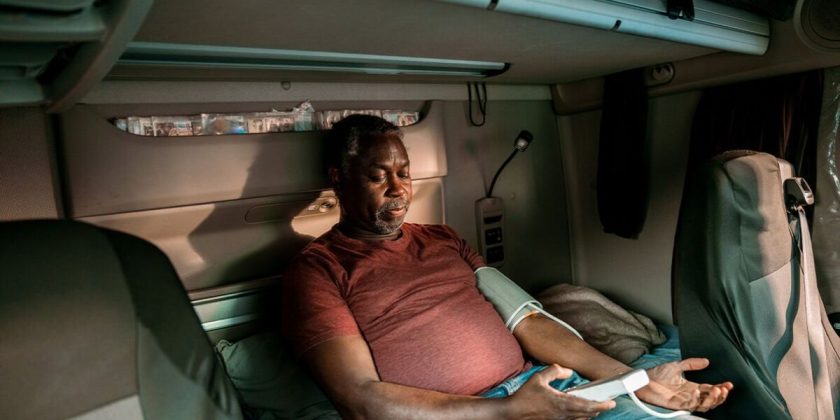What changes are being made to the Highway Code?
We use your sign-up to provide content in ways you’ve consented to and to improve our understanding of you. This may include adverts from us and 3rd parties based on our understanding. You can unsubscribe at any time. More info
Drivers have been warned that they must disclose certain medical conditions or risk fines and even a driving ban. On top of that, motoring experts stressed that road users may have their car insurance voided if they carry on driving with a condition that affects operating a vehicle.
Experts from Quotezone.co.uk have identified ten conditions that could prevent motorists from legally taking to the road or invalidate their insurance – leaving them unprotected in the case of an accident.
The penalties for not declaring a medical condition can include a £1,000 fine and the risk of prosecution if the driver is involved in an accident, yet some motorists may be unsure of what exactly precludes them from driving.
Greg Wilson, the founder of Quotezone.co.uk, said: “ A serious medical diagnosis on top of the fear of losing transportation and independence can be devastating.
“However, many conditions and medications won’t impair driving, which the DVLA and insurance providers recognise – but they do need to be kept up to date with any changes.

“Taking all precautions to be safe on the road is extremely important and drivers must play their part to ensure their wellbeing and the wellbeing of other road users is protected to the best of their knowledge.
“The DVLA has an extensive list of over 110 conditions that can affect driving, so some motorists may be unaware of all of these conditions or the extent to which they can affect driving ability.
“We found some quite surprising and lesser-known conditions, some of which carry an increased risk and therefore insurance premiums can be higher – or more seriously, some ailments can even result in the driver’s licence being revoked.
“If drivers have been diagnosed with any of these conditions they need to inform both the DVLA and their insurance provider, since having inaccurate details on the insurance policy can void the insurance and leave drivers unprotected.”
DON’T MISS
Driving cost-cutting measures could be a ‘life or death decision’ [INSIGHT]
Electric car uptake still facing ‘major barriers’ in the UK [REVEAL]
UK motorists warned of driving law changes in November [WARNING]
Diabetes
Diabetes can lead to further complications including hypoglycaemia, which can result in drowsiness and blurred vision.
It may not lead to a driving licence being revoked, but the DVLA do need to be informed, especially if the diabetes diagnosis is extremely serious.
Sleep apnoea
Extreme fatigue can lead to drivers losing concentration on the roads.

 Book here
Book here
 Book here View Deal
Book here View Deal
Book your MOT with the UK’s #1 MOT tester – just click the link to book online.

Conditions including sleep apnoea, where breathing stops and starts during sleep, as well as other illnesses affecting fatigue and in turn driving ability, must be reported to the DVLA.
Conditions including sleep apnoea, where breathing stops and starts during sleep, as well as other illnesses affecting fatigue and in turn driving ability, must be reported to the DVLA.
Heart conditions
Any heart conditions must be reported to the DVLA. For example, arrythmia must be reported as it can affect the ability to safely stop a car, and can be distracting.

Eye conditions
Most eye conditions, such as Glaucoma, must be reported to the DVLA, and it is up to their discretion what procedure to carry out regarding your licence.
Stroke
After having a stroke it is possible that drivers may be able to drive again in the future, but initially, they must stop driving for one month.
If drivers have returned back to normal health after a month, they can start driving again, however, the DVLA needs to be informed if health problems still persist for longer than a month after the stroke.
Seizures and epilepsy
If drivers have had a seizure whilst awake and lost consciousness, their licence will be taken away.
They can reapply if they go six months without a seizure and medical advisors have given their input.
If a seizure happened in other instances, such as while motorists were asleep, they may be able to retain their licence depending on DVLA and Government guidelines.
Vertigo
Recurrent or sudden dizziness must be reported to the DVLA.
Syncope
Syncope is a condition that causes a temporary loss of consciousness. Fainting conditions including syncope, which causes blackouts, must be reported to the DVLA.
Certain operations
Operations on certain body parts, including your legs, can exempt people from driving, yet this can be up to the discretion of the doctor, who should inform motorists on driving procedures after leaving the hospital.
Driving on medications
If drivers are on strong medications, it is likely that they will be recommended to avoid driving.
Opioid painkillers, tranquillisers, and certain antidepressants are examples of medicines that can affect driving ability – as well as those that cause drowsiness or say ‘do not operate heavy machinery’.
Source: Read Full Article
